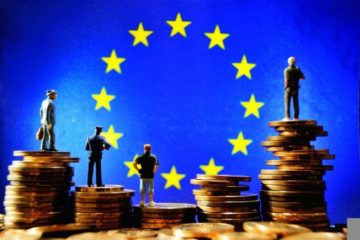Notorious Code of Conduct Group has operated in secrecy for twenty-four years, a norm that is again called into question now that the group’s mandate comes up for revision.

A window of opportunity for transparency?
The Code of Conduct Group, a working group within the Council of the EU, has begun work on the revision of its mandate, in a process due to be completed by the summer of 2022.
The revision has reignited a longstanding controversy around the group’s decisional opacity and rather limited outward communication, issues which now have begun to feed into the mandate renewal talks. However, due to many member states’ continuing strong preference for confidentiality of the proceedings, it remains unclear whether the revision will lead to substantial improvement of the group’s transparency.
Established in 1997, ahead of the establishment of the Eurozone, the Code of Conduct Group serves to discuss the coordination of business tax legislation, which remains a national competence. The group’s task is to develop, on an ongoing basis, a non-binding but politically committing code of good conduct in this area (known in insider jargon as “The Code”), with the aim of preventing harmful tax competition between the member states.
The group has been widely criticised for the limited progress it has made towards its mission over the past decades. This failure is often associated with member states’ limited exposure to external scrutiny of the positions they defend behind closed doors, which allows them to strategically stall more ambitious agreements on various fronts.
As recently as two weeks ago, Hungary and Estonia shot down allegedly moderate reform plans proposed by the group. The very act of publicly identiying the obstructors by Commissioner Gentiloni apparently caused extreme controversy inside the Ecofin Council, as such “naming and shaming” is generally not done. In the end, the Ecofin Ministers were left with the approval of the six-monthly report on progress made by the Code of Conduct Group.
Baby steps towards openness
In recent years, baby steps have been made towards greater openness. When, following the LuxLeaks disclosure concerning Luxembourg’s tax rulings system came out in 2014, MEPs who requested to see the group’s documents were only allowed access in a closed reading room without any means to reproduce the documents they saw. Today, brief agendas are published, as are, since 2016, the six-monthly, information-thin reports, although even their disclosure requires the unanimous assent of all member states. In a recent change, that and other decisions on disclosure are now taken by the Code of Conduct Group itself, rather than by the the so-called Committee of Permanent Representatives (the member states’ ambassadors to the EU). Nevertheless, the content of exchanges between member state experts in this voluntaristic group remains an extremely touchy issue.

See also
Transparency champion or attempt at reputation repair?
The Netherlands is said to be one of the few member states that actively works to enhance the openness of the Code of Conduct Group. In response to parliamentary questions provided in January of this year, the responsible state secretary stated that recent gains in transparency include the establishment of an elaborate Council information page on the group’s work, as well as more elaborate reports than was previously the case. Insiders however report that recent Dutch efforts for greater transparency have not garnered much enthusiasm.
It is unclear how the Netherlands’ public transparency profile squares with the finding, in a recent dissertation by Dutch legal scholar Martijn Nouwen, that the Netherlands has over the years been one of the major factors holding up the development of a more ambitious European business tax coordination system. Advocating for wider transparency in an unconducive environment may be employed as a low-cost reputation management tool, at a time when the country is frequently called out for hosting what commentators have described as “one of the world’s worst tax havens”.

